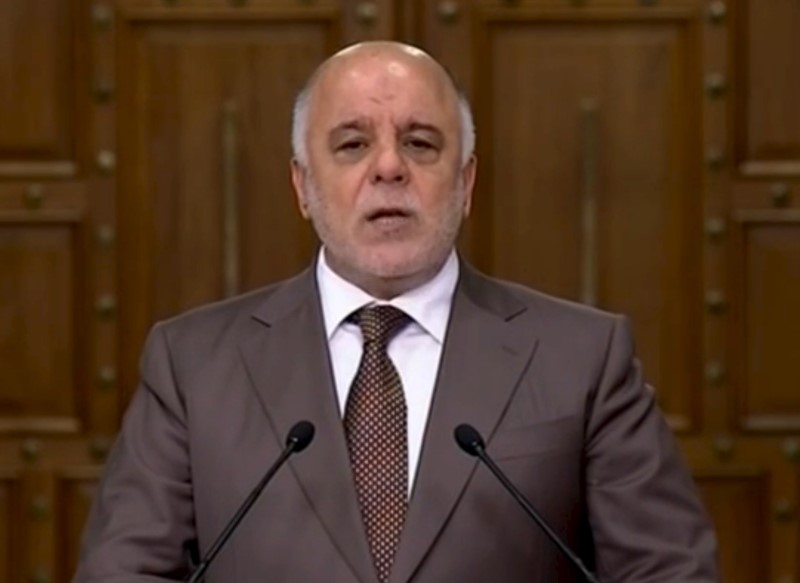BAGHDAD (Reuters) - Iraqi Prime Minister Haider al-Abadi has appealed to politicians to "freeze" their wrangling over his anti-corruption reforms and unite behind the army as it battles Islamic State in Falluja, near Baghdad.
Abadi has been grappling with a political crisis since February and has been unable to rally the main blocs in parliament to back an anti-corruption plan that includes a cabinet reshuffle.
He ordered the offensive on Falluja on May 22, after the political crisis degenerated into deadly street violence in and near to Baghdad's heavily fortified Green Zone, and a series of bombings, claimed by Islamic State, hit Shi'ite districts of the city.
"I appeal (to the politicians) to freeze all differences until the land is freed," he said on state TV late on Wednesday during a visit to the army's frontline near Falluja, 50 kilometres (32 miles) west of Baghdad.
"Daesh is the ultimate corruption and whoever prevents us from fighting Daesh is corrupt," he added, referring to the ultra-hardline Sunni group by one of its Arabic acronyms.
Since the offensive on Fallujah began, there have been no attempts by demonstrators to storm the Green Zone, which houses the Iraqi parliament, government offices and embassies.
Protesters, including followers of powerful Shi'ite cleric Moqtada al-Sadr, had previously stormed the Green Zone twice to press for reforms, on April 30 and May 20.
Abadi pledged last December that 2016 would be the year of "final victory" against the militants, predicting the capture of their de-facto capital Mosul in northern Iraq.
Falluja is the second largest Iraqi city after Mosul to remain under Islamic State control. It is the first Iraqi city that the group captured, in January 2014.

It is a historic bastion of the insurgency against both the U.S. occupation of Iraq and the Shi'ite-led authorities who took over after the overthrow of Saddam Hussein, who was a Sunni.